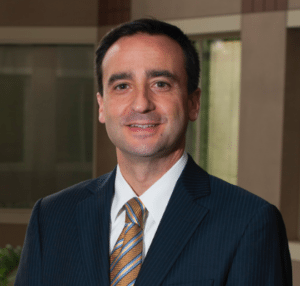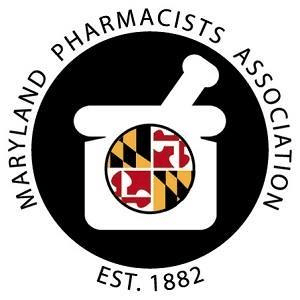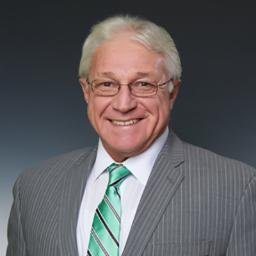Op-eds: Canadian and American regulators, law enforcement and patient advocates oppose drug importation
Since 2000, every head of the United States Food and Drug Administration (FDA) and United States Department of Health and Human Services (HHS) has opposed drug importation because the benefits that might be gained are far outweighed by the many dangers. Law enforcement, patient advocates, pharmacy groups, and regulators agree.
More than 60,000 Americans died from drug overdoses last year. Fentanyl, a synthetic opioid 100 times more powerful than morphine, caused one-fifth of those fatalities. Local law enforcement and health professionals are working at a feverish pace to prevent fatal overdoses, yet at the same time, some federal lawmakers have proposed legislation that would make it legal to import drugs that are not approved by the Food and Drug Administration into the United States from questionable sources. Such legislation would provide a gateway for international criminal organizations to import counterfeit prescription drugs and deadly illegal opioids, including fentanyl…
Bill McCollum, former attorney general of Florida and member of Congress, wrote about the dangers of drug importation on August 8, 2017:
“Opening the door to increased prescription drug importation will just make it easier for smugglers to ship this dangerous opioid into the United States. For years, we have asked police officers and prosecutors to do more with less. There are few signs that austerity will end. Changing laws to encourage importation of drugs would only add to that burden.”
Terry W. Deese, Peach County, Georgia Sheriff and president of the Georgia Sheriffs’ Association, wrote this editorial for the Macon Telegraph. It was published on July 27, 2017.
“Georgia’s law-enforcement professionals and health officials are scurrying to stop the spread of these harmful pills. But in Washington, Congress may soon make it easier for counterfeit drugs like these — along with illicit prescription medicines — to enter the United States.
This effort doesn’t make any sense. Loosening restrictions on drug importation will worsen the opioid crisis.”
Brandon Macsata, the CEO of the AIDS Drug Assistance Program Advocacy Association, writes about the dangerous unreliability of imported medicines. (Originally published in the The Washington Blade and the ADAP blog.)
The bills before Congress would remove many of the license and oversight requirements on the drugs imported into the United States by lifting those barriers, inviting an influx of bogus pharmaceutical products from the same crime rings that are selling these drugs in other countries around the world that would love better access to the U.S. market.
Law enforcement would inevitably be tasked with policing the problem, at a time when most prosecutors and law enforcement officials have their hands full with the growing opioid crisis. One of the biggest killers is fentanyl, a potent, synthetic opioid pain medication that is being laced into counterfeit pills.
This editorial by Aliyah N. Horton, the executive director of the Maryland Pharmacists Association, was published in the Baltimore Sun on July 19, 2017.
In it, Horton points out the “huge public health risk” posed by buying imported drugs, and urges legislators to vote against unsafe drug importation, and to “seek other avenues to improve patient access, safety and drug affordability.”
In a July 14, 2017 editorial for STAT, Jim Greenwood, the president and CEO of the Biotechnology Innovation Organization (BIO), reminds us that the safety risks of buying prescription medicines from other countries are real:
“The debate about drug importation has been underway for decades. Those who support it have never advanced a responsible plan that would provide the same level of health and safety protections that the FDA has delivered for decades. Its rigorous system of rules and protocols ensure that prescription drugs in this country are safe and effective. It protects those high standards by preventing the sale of imported prescription drugs that are not approved for use in the U.S.”
A few years ago, Maine introduced similar legislation that allowed patients to buy drugs from foreign pharmacies. We, too, wanted to provide patients with lower-cost medicines.
It proved to be a big mistake. Instead of getting drugs from Canada, we got dangerous and ineffective counterfeit pills from other countries. Maine’s disastrous experience with counterfeit Canadian drug imports should serve as a lesson to our lawmakers to say no to drug importation legislation.
During my law enforcement career, spanning four decades, I have spent a great deal of time investigating crimes related to illegal drug use and trafficking. The growing scourge of methamphetamine and opioid use is unlike other crimes I have prosecuted in the past. It has literally changed the way we protect our citizens and officers. In addition to the traditional equipment carried by an officer, they must now equip themselves with Naloxone to counteract the effects of an opioid overdose, thusly, amending our existing policies has become necessary.
In the midst of a nationwide epidemic of opioid addiction fueled by illicit smuggling of drugs from overseas, and coming on the heels of a year in which U.S. Customs and Border Protection seized over $73 million worth of counterfeit medicines at our nation’s ports, some members of Congress have suggested a novel approach to these growing threats: “opening the floodgates.”







